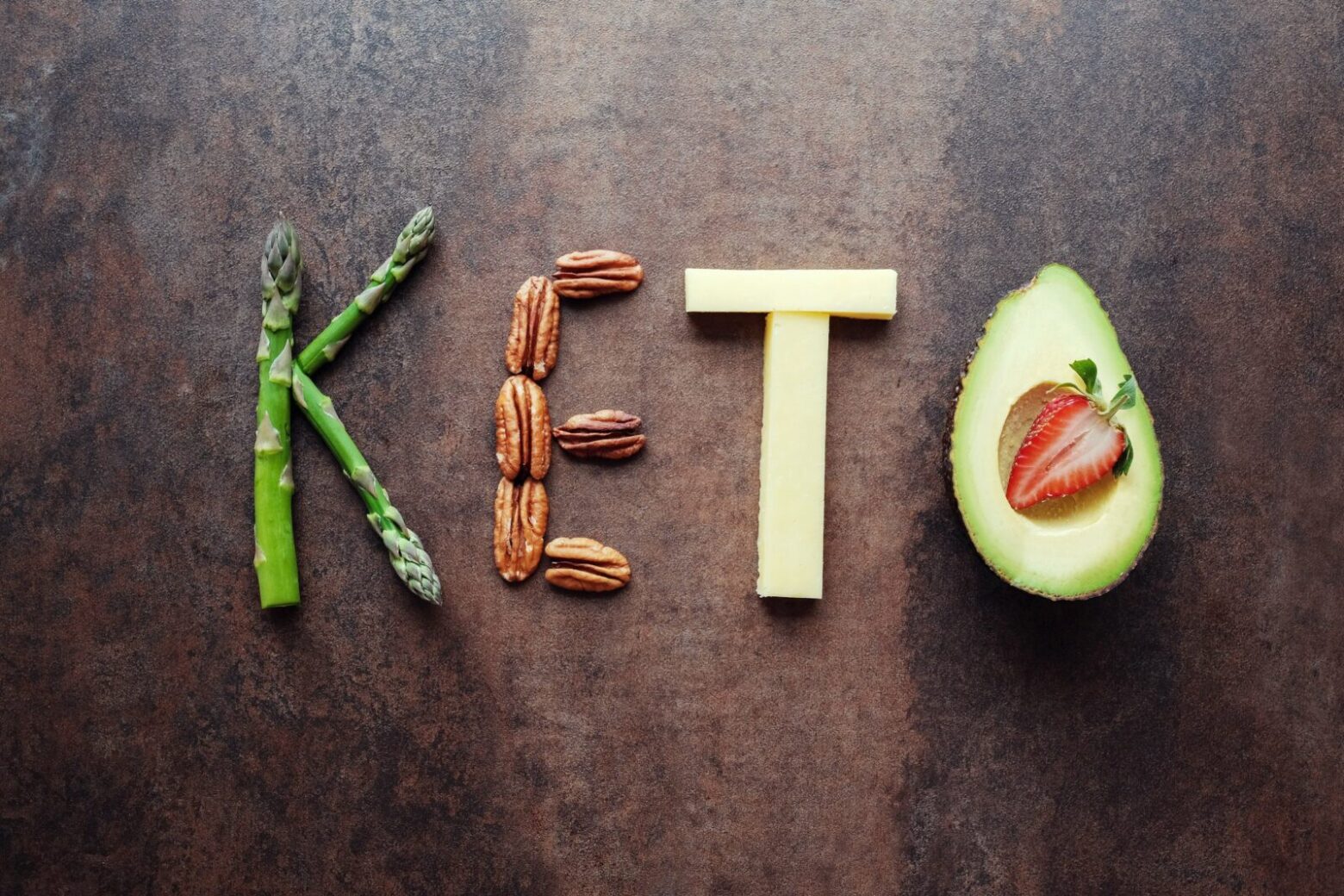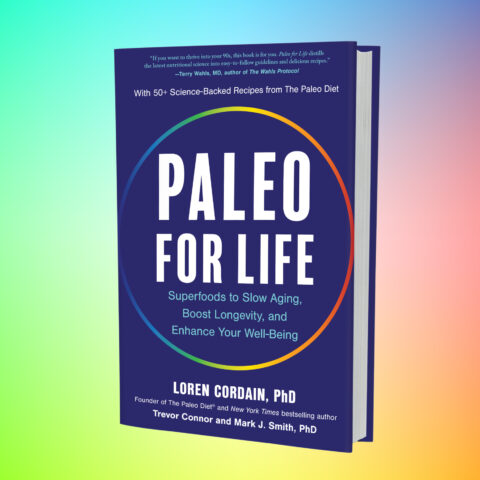Why I Quit Keto and Returned to The Paleo Diet

What does keto feel like? Well, I can tell you. I decided to embark on a full-out keto diet as an experiment before writing anything on the topic. One of the main components of the diet I was eager to experience was increased energy and cognition, both of which were listed as positive side effects. At the time, I was dealing with pretty low physical energy, and lacked the mental energy needed to tackle several very intense projects.
Here’s what happened.
But first, a little background on the keto diet. As humans, we tend to love fat.
I know. The first reaction to that statement is easily, “Not exactly. More like I’ve been trying to get rid of it.”
Hear me out: How good is an avocado, on anything? What about olive oil or coconut cream? It instantly makes whatever you’re eating taste so much better.
While considering this in early 2019 after being on The Paleo Diet® for roughly 12 years, I thought that maybe these high-fat diets (specifically keto) held some merit. After all, it appeared that if humans have a taste for fatty foods, perhaps we should be eating more of the good kind?
I thought maybe the carbs I was eating had something to do with it, along with not getting enough fat, and decided to try keto for at least a month to see if a shift occurred.
What Is The Paleo Diet?
First, let’s define The Paleo Diet. Short for the “Paleolithic” diet, this lifestyle centers around consuming only the foods that were available to our early hunter-gatherer ancestors. Because large amounts of grains, genetically modified foods such as corn and soy, and dairy products were not a part of this ancestral diet, these foods are excluded in order to help avoid modern diseases and excess inflammation that can result from consuming them.
Although it sometimes gets lumped into the low carb diet group, The Paleo Diet is not a low carb diet. It is naturally “lower” in carbs than the Standard American Diet because The Paleo Diet omits processed carbs such as pastas, breads, and sugars, but it does contain natural carbs from starchy veggies like carrots, squash, sweet potatoes, and other tubers and fruits.
What Is the Keto Diet?
The Keto Diet is a very low-carb, high fat, moderate protein diet. Unlike The Paleo Diet, it does not limit dairy (unless you decide to keep it dairy-free) and avoids all types of carbs, including those from natural sources like fruit.
The goal with doing this is to force the body into a state of ketosis (hence, “keto”), where it burns fat and produces ketones as a fuel source, as a result of insufficient carbohydrates. This is why you often see the keto diet advertised as awesome for weight loss, since by depriving your body of its preferred energy source (carbs, aka: glucose) it puts your body in a state of burning pure body fat.
The keto diet was originally developed to specifically help treat seizures in patients suffering from epilepsy, but has now branched out as a means to help with weight loss, autism, neurological disorders, and more. [1-3]
Key Differences Between Keto and Paleo
One of the main differences between The Paleo Diet and the keto diet is that The Paleo Diet removes food groups like grains and dairy, but still allows natural carbohydrate sources, while the keto diet is only concerned with removing carbs.
More importantly, The Paleo Diet is more of a lifestyle, while keto is a short-term treatment. Going Paleo is a way of eating that aligns with what would constitute a hunter-gatherer’s ideal diet, and thus, if we’re viewing diet from an evolutionary perspective, our ideal diet as humans.
The Paleo Diet is designed for long-term health and includes all foods that would have been largely consumed in hunter-gatherer days, including high-carb varieties like fruits and tubers, while the keto diet is designed around no carbohydrate consumption in order to keep blood sugar and insulin levels as low as possible.
RELATED: Paleo vs. Keto: What’s the Difference?
Why I Quit Keto and Returned to The Paleo Diet
Our body was designed to handle periods of being in ketosis, but it was not designed to stay there.
While people in hunter-gatherer times naturally entered a state of ketosis during times of famine, they certainly wouldn’t ignore a perfectly edible food source of, say, apples. (Certainly not because they contained “too many carbs”!)
After going keto for a while, I knew that it wasn’t going to be sustainable. For myself, this was illustrated in several ways.
I Didn’t Get the “Keto Clarity”
Sadly, I never got the benefit of enhanced cognition or clarity after going keto, even after overcoming the “carb flu” period of the diet.
This will be different for everyone, but I personally experienced even less clarity and mental energy after removing whole-food sources of carbs. This could be chalked up to not receiving as many nutrients and minerals that support optimal brain function. [4]
After quitting keto, I decided to try a different approach. During keto, I ate more wild caught fish than I had previously, and noticed that every time I did, I received the “boost” I had been looking for from keto. Once I added whole-food carb sources back into my diet, I kept eating wild fish at least every other day. This helped me feel my best mentally. Our brains require DHA to function optimally, so getting my fill from marine foods made sense. [5]
If this isn’t an illustration of needing a “well-rounded” diet to function optimally, I don’t know what is.
I Experienced Negative Side Effects
I noticed both mental and physical side effects that indicated I should not stay on keto. I was irritable during (and even in the month after) my stint on the keto diet. Plus, I developed dandruff and toenail infections for the first time in my life.
After researching more on the microbiome and how it responds to different amounts of carbs or higher fats, I found that a high-fat diet absent carbs can completely restructure your microbiome, which plays a huge role in immunity, or your ability to fight off “invaders” (aka: different “bugs” and bacteria that cause infections). [6]
Should You Quit Keto?
To be clear, I’m not advocating against the keto diet. In fact, I would recommend it wholeheartedly under two conditions:
- You’re dealing with a situation that requires a therapeutic diet, and
- It is used only temporarily.
And if you’re doing just that and are seeing improvement, by all means continue.
The problem with the modern keto diet is that average people see it was beneficial for someone with a condition, or that another person lost weight, so they assume that keto is the “best” way to eat all of the time.
The Keto Diet Is Good for Short-Term Fixes But Not the Long-Term
Think of the keto diet like taking antibiotics. Antibiotics work great, but they should be used sparingly. That’s because both are meant to be a short-term treatment, not a lifestyle.
At the end of the day, keto is designed to set the stage for healing certain diseases or optimizing blood sugar/insulin issues so that, eventually, one can return to eating a full range of natural foods. But research shows that a long-term keto diet can lead to nutritional deficiencies.
For now, I alternate between days of very low carbs and days of higher carbs, and feel incredible. Why? I’m firmly convinced it is because I’m behaving cyclically with my diet, as our ancestors would have done throughout evolution.
So, in reality, this isn’t about “coming back” to a diet. It’s about returning to nature.
References
1. D’Andrea Meira, Isabella et al. “Ketogenic Diet and Epilepsy: What We Know So Far.” Frontiers in Neuroscience vol. 13 5. 29 Jan. 2019, doi:10.3389/fnins.2019.00005
2. Lee, Ryan W Y et al. “A modified ketogenic gluten-free diet with MCT improves behavior in children with autism spectrum disorder.” Physiology & behavior vol. 188 (2018): 205-211. doi:10.1016/j.physbeh.2018.02.006 <https://www.ncbi.nlm.nih.gov/pmc/articles/PMC5863039/>
3. Dashti, Hussein M et al. “Long-term effects of a ketogenic diet in obese patients.” Experimental and clinical cardiology vol. 9,3 (2004): 200-5. <https://www.ncbi.nlm.nih.gov/pmc/articles/PMC2716748/>
4. Gómez-Pinilla, Fernando. “Brain foods: the effects of nutrients on brain function.” Nature reviews. Neuroscience vol. 9,7 (2008): 568-78. doi:10.1038/nrn2421 <https://www.ncbi.nlm.nih.gov/pmc/articles/PMC2805706/>
6. Medical News Today. “How a Low Carb Diet Might Impact Gut Health.” Gastrointensional/Gastroenterology. Accessed Dec. 12, 2020. <https://www.medicalnewstoday.com/articles/323171#The-health-benefits-of-eating-carbs>
Megan Patiry
Megan Patiry is a freelance writer specializing in ancestral nutrition. She has personally followed a Paleo-style, ancestral style of eating for over a decade.
More About The Author




